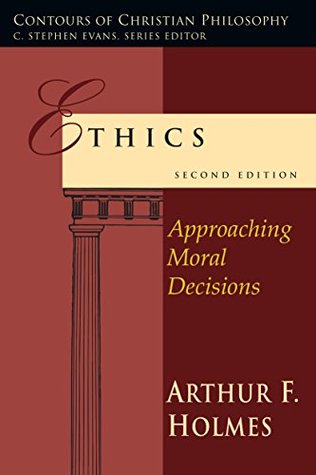Kindle Notes & Highlights
Read between
February 27 - May 25, 2025
The ethical egoist argues that, if people are motivated by self-interest anyway, then they ought to pursue their own good as deliberately and effectively as they can. Notice here the step from psychological “fact” to ethical “ought,” from a description to a normative obligation.
when we are commanded to love God, to love our fellows, to love God’s law, this is not the unthinking and uncaring conformity of a puppet but the heartfelt and deliberate obedience of a morally responsible person.
First, what about the claim that a fetus has the right to life? The Old Testament plainly values fetal life as a distinctive work of God rather than treating is as another “piece of tissue” (Eccles 11:5; Ps 139:13-16; Jer 1:5). Biologically, too, any human fetus is of course human life; and, even though it is not yet an actual person in the sense of a self-conscious and reflective being relating meaningfully to others, it is a potential person likely to develop all the powers adults have. As such its life is to be received and protected as a gift from God. Abortion on demand, for personal
...more
This highlight has been truncated due to consecutive passage length restrictions.
But a sexual relationship has so plain a reproductive potential that childless marriages without planning are the exception.
Psychologists had created tests to assess the reasoning skills traditionally used in resolving moral dilemmas, but in the 1980s Carol Gilligan noticed that women score significantly lower on such tests than men. Why, she asked, would that be so? Is it that women approach moral problems differently than men, that something other than reasoning skills is involved? What about women’s moral experience is different? They experience childbirth of course, and they nurse and nurture children; and they face demands they did not choose, the unavoidable involvements of relationships in which they find
...more
If a virtue is a habit of mind as Aristotle maintained, then how is it acquired? MacIntyre likens it to the skills of an outstanding musician or athlete or surgeon.[3]
Excellence requires discipline of mind and body, for consistency is essential to being really good. So too with moral virtues. Children need rules and external control, like craftsmen learning their trade, and the continuous discipline develops good habits. But this applies also to adults: a woman who at cost to herself repeatedly chooses to help those in need and makes such beneficence her general rule, begins to experience benevolent dispositions. Practices like these—thoughtful, intentional, habitual, even rule directed—shape virtue.
Aristotle saw virtues as habits of mind that can be cultivated. They do not emerge naturally over the course of time, and they sometimes run counter to our seemingly natural tendencies. Nor are they due merely to formal instruction. Discipline and regulation may be conducive to good habits, yet habits of mind are neither unconscious nor altogether involuntary. They develop as a result of deliberation about the choices we constantly make and the ends we desire. We are responsible agents in our own character development. The weak-willed do not act out of ignorance either; they act rather out of
...more
Thomas Aquinas had followed Aristotle to this point, adding that obedience to the law’s commands could help habituate us to virtue; but he still recognized that habituation alone is not enough without “infusion.” The Holy Spirit infuses the theological virtues of faith, hope and love, which go beyond any natural potential, but he also infuses habits that strengthen already existing habits.[14] In effect he frees us to be good. Grace does what human nature alone cannot, not grace instead of natural processes, however, but grace working in and through natural processes to the ends our Creator
...more


